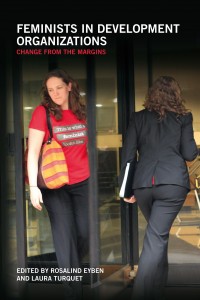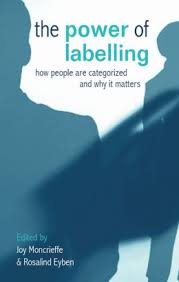I draw on my experience as a feminist bureaucrat involved in the 1995 Fourth World Conference on Women in Beijing to make the case for multiple feminist narratives of Beijing that woven together can create a myth that points to the importance of collective organising that cuts across state–civil society boundaries.
This article contributes to making visible the actors and the spaces in which discourses of aid and development are constructed and contested. I take as a case study a two year process of the production of texts on ‘empowerment’ involving a group of officials from the head offices of bilateral and multilateral agencies comprising a ‘task team’ in the OECD DAC – the ‘donors’ club’. I look at how those members of the task team who were committed to development aid in support of social transformation tried to put ’power’ back into ’empowerment’ and explore how and why they succeeded in producing a surprisingly radical text in the current global political environment of development co-operation.
The geo-politics of development is in a state of uncertainty and transition that the Busan High Level Forum both mirrored and contributed to. By analysing the Busan preparations and conference through textual analysis and participant observation we found it to be a fractured landscape of variable imagined geographies, suggesting that the question of who is ‘North’ and who is ‘South’ will continue to shape global negotiations on the future of development co-operation.
This article historicises the Organisation for Economic Cooperation and Development Development Assistance Committee (DAC) as a site where the meanings of development and the purposes of aid were contested and where gradually a more diverse set of actors were invited to engage in the argument.
Although what has been called ‘the people-centred development decade’ of international aid in the 1990’s can be explained at the systemic level by the end of the Cold War, such an account does not tell us how it actually came about. This article argues that a contributory factor can be identified through the life- histories of a generation of development semi- professionals, women now in their sixties who were caught up and part of two great emancipatory moments in the second half of the twentieth century: freedom from colonialism and women’s liberation. .
(2010) ‘Hiding relations: the irony of ‘effective aid’ European Journal of Development Research 22,3: 382-397
Using the notion of ‘substantialism’, I identify the causes and consequences of the significance of relationships staying hidden in aid operations. My article is the subject of lively debate in development policy and practice circles as evidenced from internet blogs, workshop topics and invitations to speak at conferences on this theme.
An ethnographic case study of an international policy conference to examine how the concept of empowerment is being constructed, contested and shaped in international development. Invited speakers were the surrogates in a discursive battle never made transparent or recognized in the design of the programme.
An article about the strategies of feminists in development organisations that introduces a new approach to gender mainstreaming studies by arguing that politically astute feminist bureaucrats work towards transformational goals by exploiting organisational contradictions rather than seeking to resolve them.
(2009) with R. Napier-Moore. ‘Choosing words with care. Shifting meanings of women’s empowerment in international development Third World Quarterly 30, 2: 285-300.
Based on textual analysis and interviews, we develop a theoretical line of enquiry that explores the discretionary behaviour of feminist bureaucrats in shaping policy and manipulating discourses.
Development practitioners may be unaware of the extent to which strategic choices and debates are informed by disparate thinking about how history happens. Based on workshops with Oxfam staff, the content and approach to which have subsequently developed for a variety of international development organisations.
This article summarizes the findings from a pilot study and discusses the utility of co-operative enquiry for exploring professional practice in the complex cultural borderlands of unequal power relations that characterise the international aid system and draws some important conclusions about the conditions under which such a methodology is appropriate.
- (2006 ) ‘The road not taken: international aid’s choice of Copenhagen over Beijing’ Third World Quarterly 27, 6:595-608,
I analyse the construction of the agendas for these two world conferences and argues that the powerful influence of economic rational choice theory associated with bureaucratic modes of thought means the central debate in development policy has remained that of growth versus equity. Beijing’s transformative agenda has remained marginal.
Introductory article to a Bulletin issue edited when I was Team leader of the IDS Participation team to demonstrate the team’s evolving work on power. The article identifies and discusses the team’s varying theoretical perspectives that represented in the articles in that issue.
I use gift theory with case studies from Bolivia to analyse the contradictions in aid operations as these play out in new ways of providing aid.
An early article that contributed to developing my relational approach to the analysis of aid





